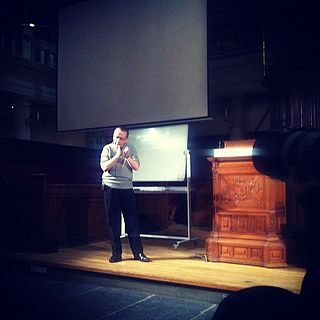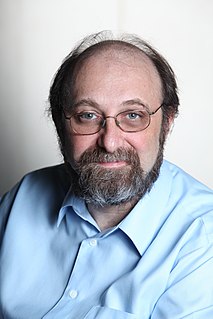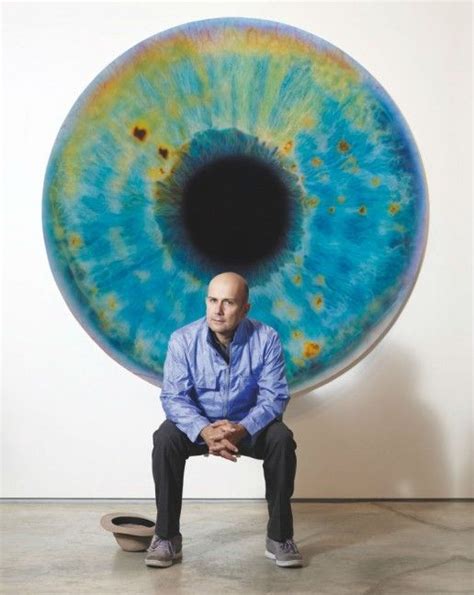A Quote by Manuel De Landa
Emergent properties result from interactions between individual parts, so it follows that a top down analytical approach that begins with the whole and dissects it into its constituent parts is bound to miss precisely those emergent properties
Related Quotes
Three principles - the conformability of nature to herself, the applicability of the criterion of simplicity, and the utility of certain parts of mathematics in describing physical reality - are thus consequences of the underlying law of the elementary particles and their interactions. Those three principles need not be assumed as separate metaphysical postulates. Instead, they are emergent properties of the fundamental laws of physics.
None of the individual metal hunks of an airplane have the property of ?ight, but when they are attached together in the right way, the result takes to the air. A thin metal bar won't do you much good if you're trying to control a jaguar, but several of them in parallel have the property of containment. The concept of emergent properties means that something new can be introduced that is not inherent in any of the parts.
I, and all the complex things around me, exist only because many things were assembled in a very precise way. The 'emergent' properties are not magical. They are really there and eventually they may start re-arranging the environments that generated them. But they don't exist 'in' the bits and pieces that made them; they emerge from the arrangement of those bits and pieces in very precise ways. And that is also true of the emergent entities known as "you" and "me".
The degree of confirmation assigned to any given hypothesis is sensitive to properties of the entire belief system... simplicity, plausibility, and conservatism are properties that theories have in virtue of their relation to the whole structure of scientific beliefs taken collectively. A measure of conservatism or simplicity would be a metric over global properties of belief systems.
I think the most important work that is going on has to do with the search for very general and abstract features of what is sometimes called universal grammar: general properties of language that reflect a kind of biological necessity rather than logical necessity; that is, properties of language that are not logically necessary for such a system but which are essential invariant properties of human language and are known without learning. We know these properties but we don't learn them. We simply use our knowledge of these properties as the basis for learning.
The best and safest way of philosophising seems to be, first to enquire diligently into the properties of things, and to establish those properties by experiences [experiments] and then to proceed slowly to hypotheses for the explanation of them. For hypotheses should be employed only in explaining the properties of things, but not assumed in determining them; unless so far as they may furnish experiments.
Resilience, timing, adaptation - these are the three pillars upon which the emergent properties of interacting systems rest. When the systems are the economy and the environment, understanding of the relationships among these concepts is crucial. This volume does a better job of explaining how to manage both money and nature to ensure humanity's long-term future than any other work I know of. Read and reflect.
Modern physics has taught us that the nature of any system cannot be discovered by dividing it into its component parts and studying each part by itself... We must keep our attention fixed on the whole and on the interconnection between the parts. The same is true of our intellectual life. It is impossible to make a clear cut between science, religion, and art. The whole is never equal simply to the sum of its various parts.





































